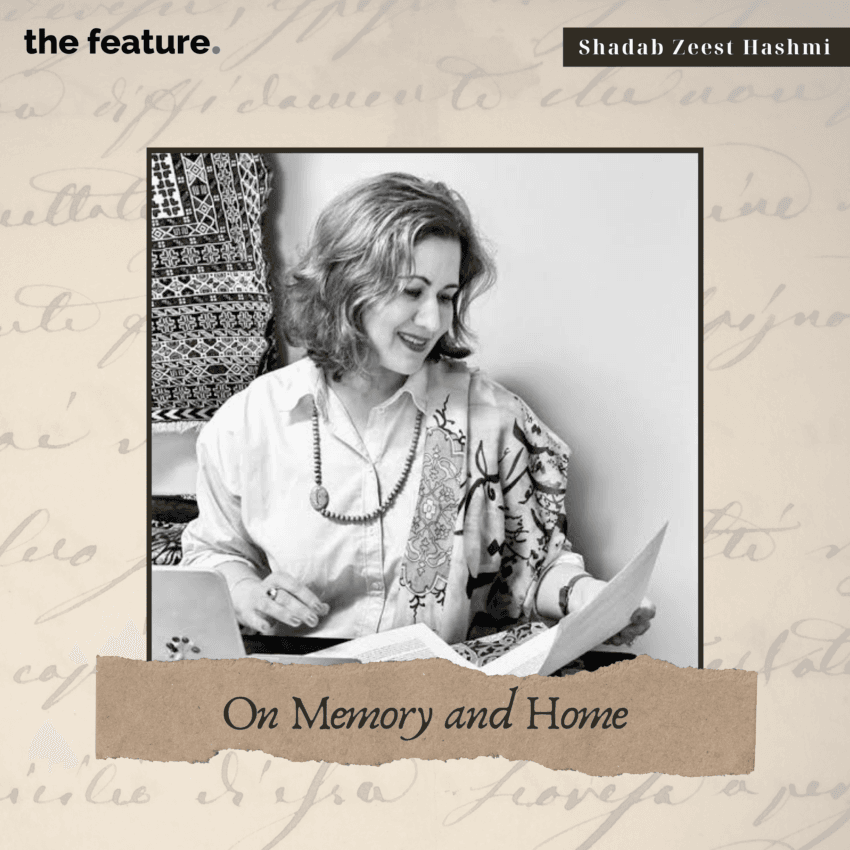“Her exploration of native traditions and collective histories through food, places, and landscape indigenous to the people of the subcontinent in her book Ghazal Cosmopolitan allows the reader to transcend the boundaries of the present moment and delve into the intricacies of memories of the past.”

As a diasporic Pakistani-American writer, Shadab Zeest Hashmi explores multifaceted complexities pertaining to culture, tradition, and identity faced by the people of the subcontinent. Through the lens of ‘Memory’ and its role in reclaiming cultural resonance among generations, Hashmi’s poetry serves as a vessel for the exploration of self, identity, nationhood, and a strong connection with the history of one’s homeland.
Her exploration of native traditions and collective histories through food, places, and landscape indigenous to the people of the subcontinent in her book Ghazal Cosmopolitan allows the reader to transcend the boundaries of the present moment and delve into the intricacies of memories of the past.
By using phrases like “arrows that pierced us on the maps”, “we don’t laugh because someone handed us separate keys and your door became an unnamable distance”, and “our duet of Malhaar against the blind new borders” the poet reminisces about the bygone times when the entire nation existed as a whole rather than fragmented pieces of an object. Furthermore, the significance of food can be observed in her poem “Taste-buds Bloom on Silence” wherein she writes “Dark Honey/ For the newly born” and “rice pudding/ For when we gather.” Thenceforth, as a postcolonial writer, her poetry resonates with people belonging to diverse culture and transcends the boundaries of culture, nationality and language.




